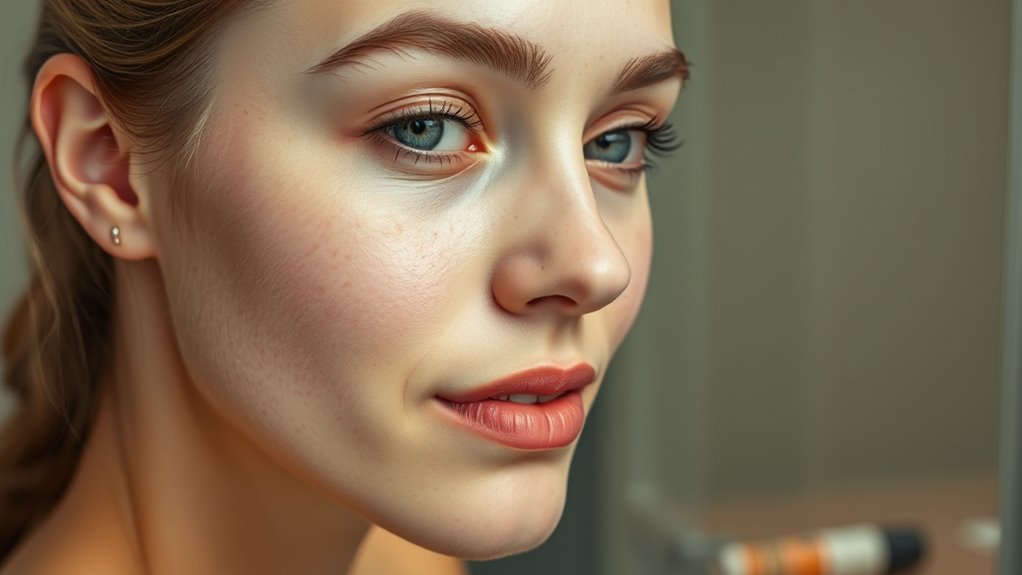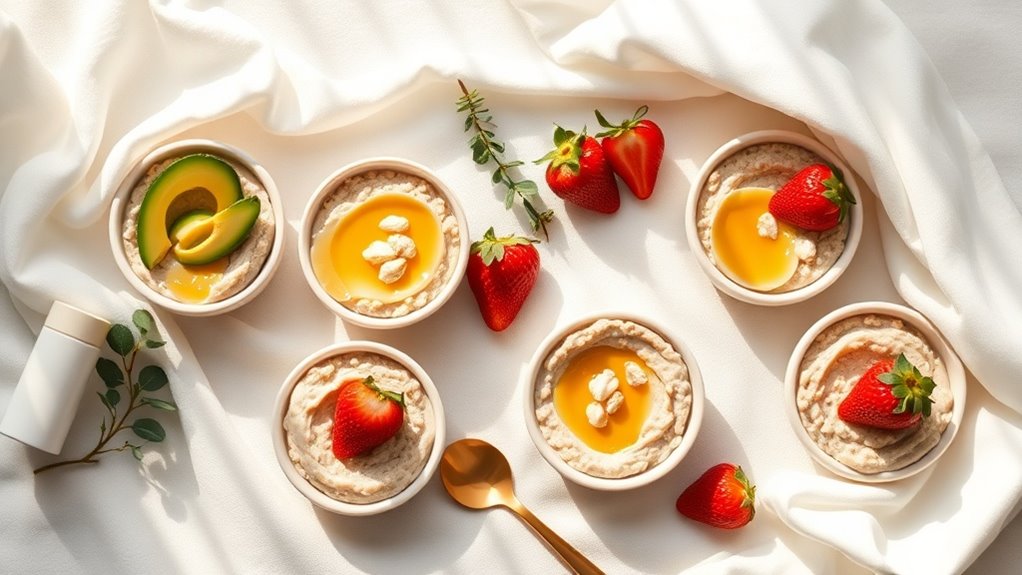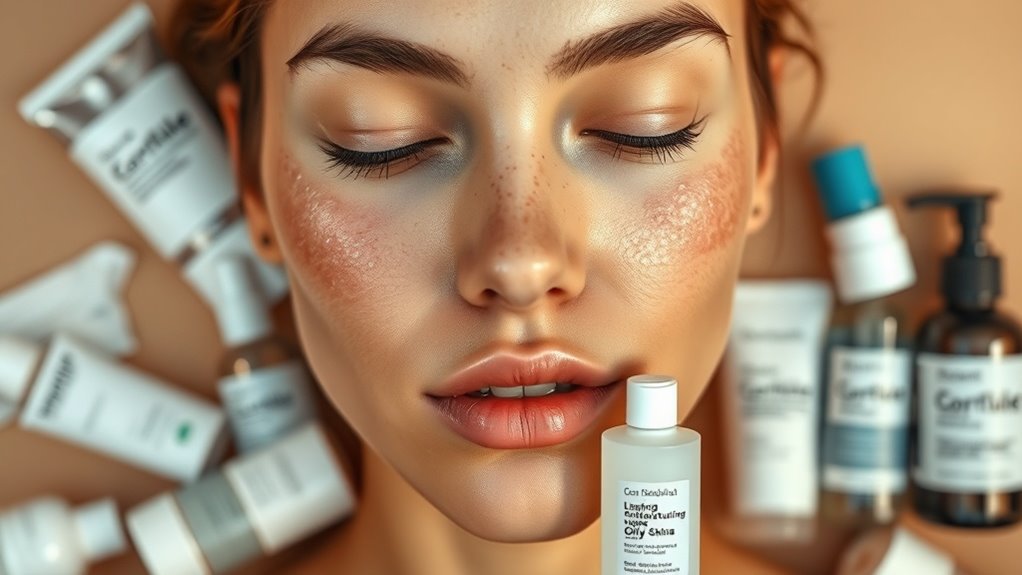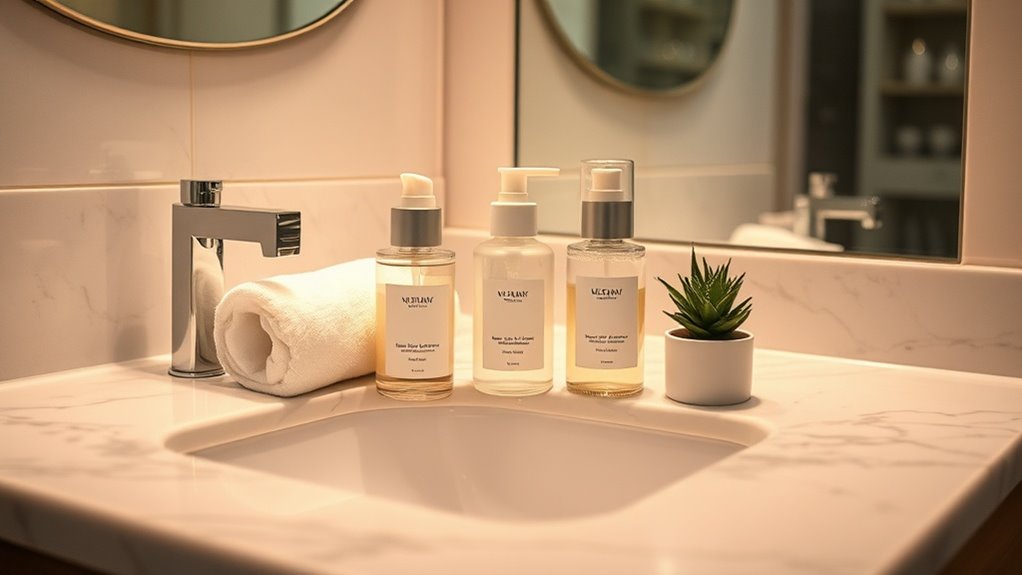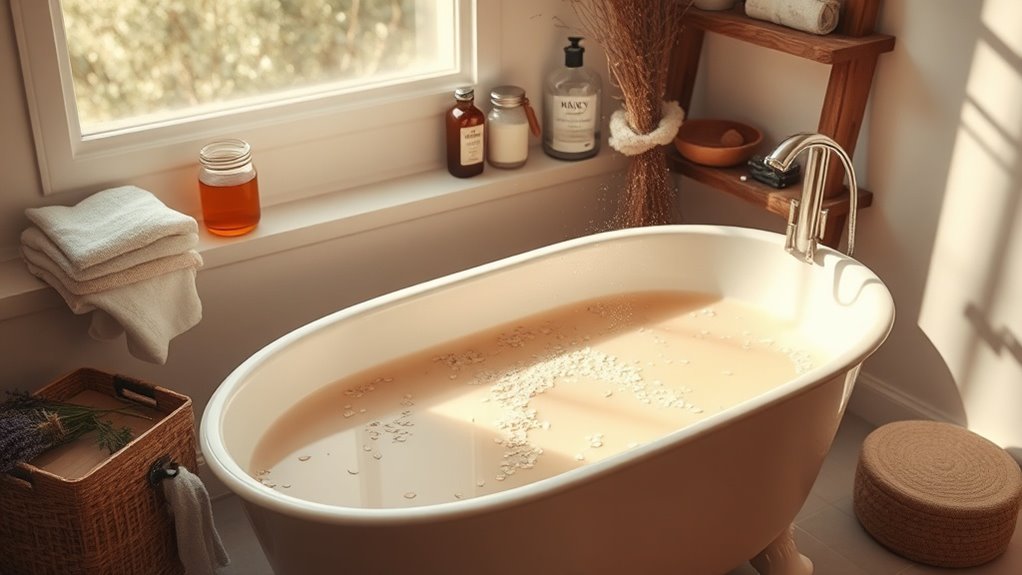I Stopped Touching My Pimples – The Difference Was Instant
Your skin is a canvas, and every touch can leave a mark. When you stop touching your pimples, you might notice immediate changes in inflammation and redness. This simple act can create a ripple effect on your skin health. Understanding the science behind acne and the psychological benefits of breaking this habit is essential. So, how can you embrace a healthier skincare routine and transform not just your complexion, but your overall well-being?
The Habit of Touching Pimples
Touching pimples is a common habit that can have detrimental effects on skin health.
When you squeeze or pick at your pimples, you introduce bacteria, increase inflammation, and risk scarring.
To maintain a clear skin habit, it’s essential to resist the urge to touch your face.
Instead, focus on gentle cleansing and appropriate treatments to promote healthier skin without exacerbating the problem. Incorporating a simple routine that includes quick and easy treatments can greatly enhance your skincare efforts.
Immediate Changes in Skin Health
When you stop touching your pimples, you’ll notice immediate changes in your skin health. Reduced inflammation and redness occur quickly, leading to fewer breakouts over time. Additionally, your skin texture can improve, giving you a clearer and smoother complexion. This simple action can significantly contribute to achieving clear skin naturally, enhancing your overall skin health.
Reduced Inflammation and Redness
By refraining from touching pimples, you can greatly reduce inflammation and redness, leading to immediate improvements in skin health.
When you avoid picking or squeezing, you minimize irritation and prevent the introduction of bacteria, which can exacerbate the condition.
This simple change not only calms existing inflammation but also promotes a more even skin tone, enhancing overall appearance rapidly.
Fewer Breakouts Over Time
Reducing inflammation and redness not only enhances immediate skin health but also leads to fewer breakouts over time.
By refraining from touching your pimples, you limit the introduction of bacteria and irritation, which can trigger new lesions.
This proactive approach allows your skin to heal more effectively, stabilizing oil production and promoting a healthier environment that discourages future acne development.
Improved Skin Texture
As you stop touching your pimples, you’ll likely notice an immediate improvement in your skin texture.
The reduction in inflammation allows your skin’s surface to smoothen, minimizing roughness and unevenness.
Additionally, avoiding contact prevents the transfer of oils and bacteria, further enhancing skin clarity.
Over time, this leads to a more refined complexion, promoting overall skin health and resilience.
The Science Behind Acne and Touching
Although you might not realize it, touching your face can greatly impact the development and severity of acne. Bacteria from your hands can transfer to your skin, increasing inflammation and clogging pores. The table below outlines the relationship between touching and acne severity.
| Factor | Impact on Acne |
|---|---|
| Bacteria Transfer | Increases inflammation |
| Pore Clogging | Worsens breakouts |
| Skin Irritation | Triggers more pimples |
| Healing Disruption | Prolongs acne duration |
In addition, managing oily skin through natural remedies can help reduce breakouts and improve overall complexion.
Psychological Benefits of Stopping
Stopping the habit of touching pimples can greatly enhance your self-esteem by improving your skin’s appearance. As you notice fewer breakouts and irritation, you’ll likely experience reduced anxiety levels related to your complexion. This positive shift can create a healthier mindset and promote overall emotional well-being. Additionally, embracing transformative self-love habits can further enrich your daily beauty routine and mental wellness.
Enhanced Self-Esteem
Improved self-esteem often emerges as a significant psychological benefit when you stop touching pimples.
By refraining from this behavior, you can reduce feelings of shame and embarrassment about your skin. This newfound confidence can enhance your self-image, allowing you to engage more freely in social situations.
Ultimately, this shift fosters a more positive outlook on yourself and your interactions with others.
Reduced Anxiety Levels
When you stop touching pimples, you may notice a significant reduction in anxiety levels.
This decrease occurs as you eliminate the stress associated with skin damage and the fear of judgment from others.
By refraining from picking, you foster a healthier mindset, leading to improved emotional well-being.
Consequently, your overall anxiety decreases, allowing you to feel more confident and at ease in social situations.
Tips for Breaking the Habit
Although breaking the habit of touching pimples can be challenging, implementing specific strategies can greatly reduce the urge.
Consider these tips:
- Keep your hands busy with a fidget toy.
- Use reminders like sticky notes on mirrors.
- Maintain a skincare routine to minimize imperfections.
- Identify triggers and avoid them.
- Practice mindfulness to stay present and aware.
Additionally, adopting natural remedies can help support your skin’s healing process and prevent future breakouts.
Embracing a Healthier Skincare Routine
Establishing a healthier skincare routine is pivotal in preventing the urge to touch pimples. Incorporate gentle cleansing, exfoliation, and moisturizing into your daily regimen. Use non-comedogenic products to minimize breakouts. Regularly applying sunscreen protects your skin from damage and irritation. Additionally, consider incorporating gentle techniques for blackhead removal to further enhance your skin’s clarity and health.

